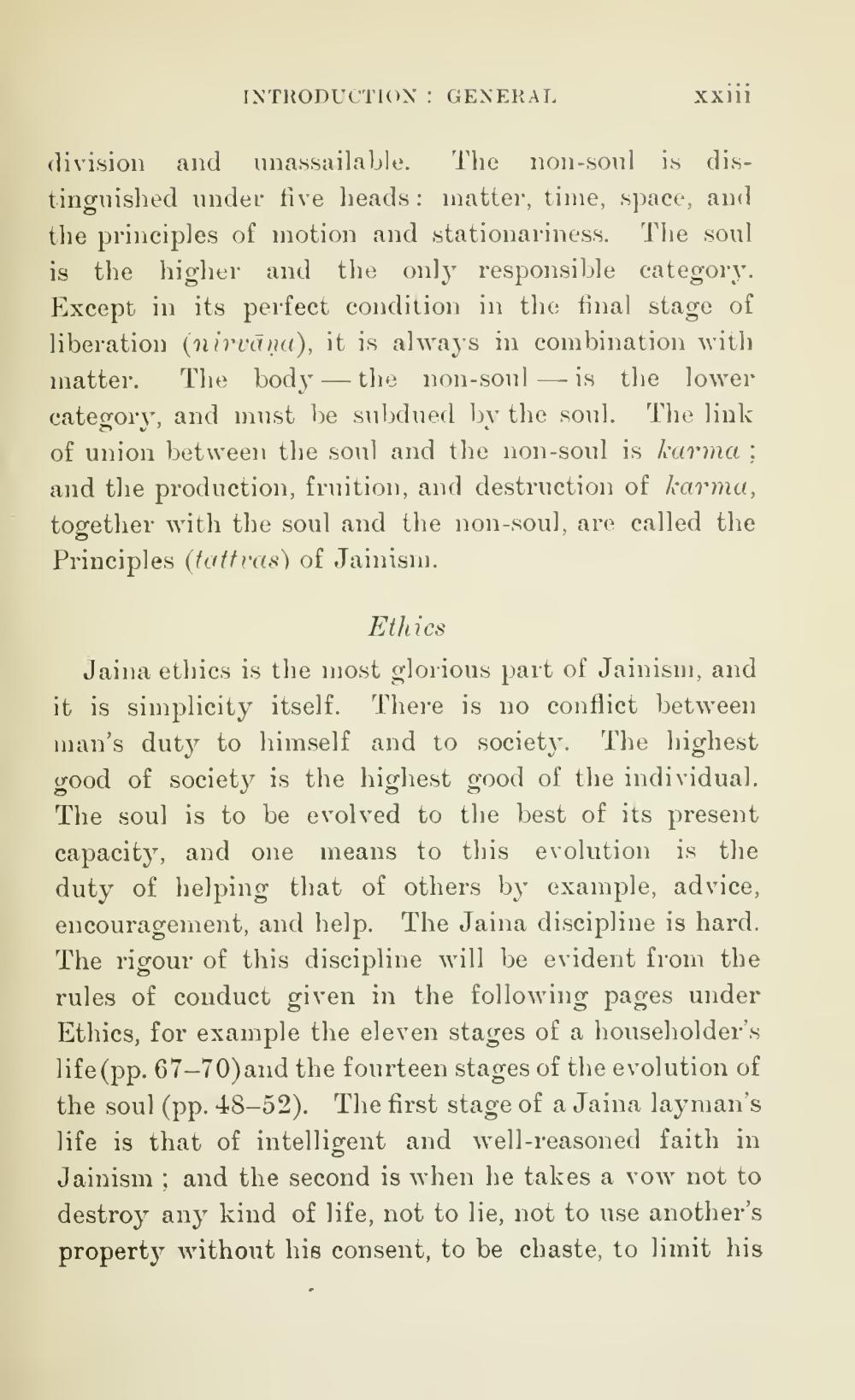________________
INTRODUCTION: GENERAL
xxi
division and massailable. The non-soul is distinguished under five heads : matter, time, space, and the principles of motion and stationariness. The soul is the higher and the only responsible category. Except in its perfect condition in the final stage of liberation (nirvana), it is always in combination with matter. The body — the non-soul —- is the lower category, and must be subdued by the soul. The link of union between the soul and the non-soul is karma ; and the production, fruition, and destruction of karma, together with the soul and the non-soul, are called the Principles (tuttras) of Jainismi.
Ethics Jaina ethics is the most glorious part of Jainism, and it is simplicity itself. There is no conflict between man's duty to himself and to society. The highest yood of society is the highest good of the individual, The soul is to be evolved to the best of its present capacity, and one means to this evolution is the duty of helping that of others by example, advice, encouragement, and help. The Jaina discipline is hard. The rigour of this discipline will be evident from the rules of conduct given in the following pages under Ethics, for example the eleven stages of a householder's life (pp. 67-70) and the fourteen stages of the evolution of the soul (pp. 48–52). The first stage of a Jaina layman's life is that of intelligent and well-reasoned faith in Jainism; and the second is when he takes a row not to destroy any kind of life, not to lie, not to use another's property without his consent, to be chaste, to limit his




